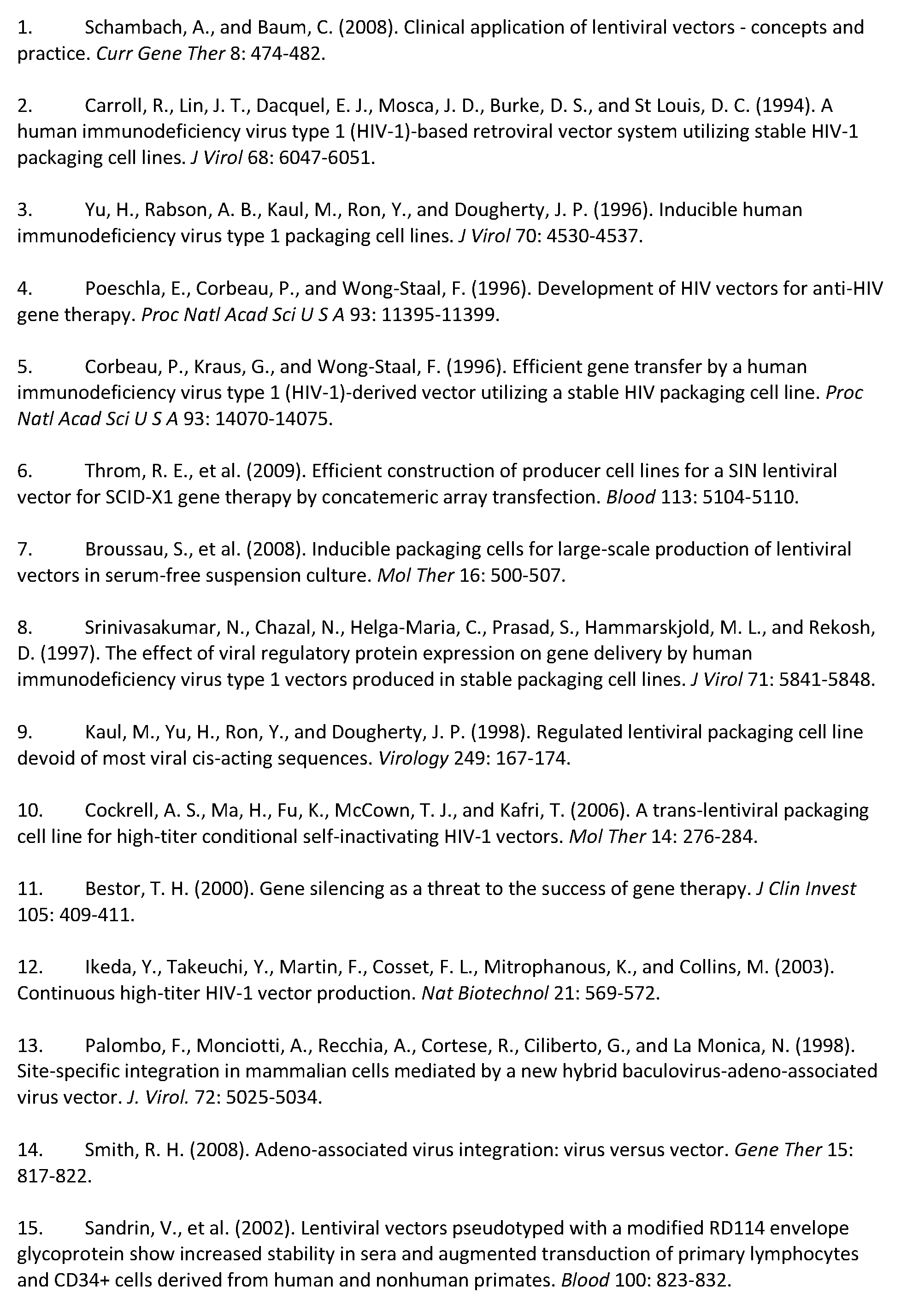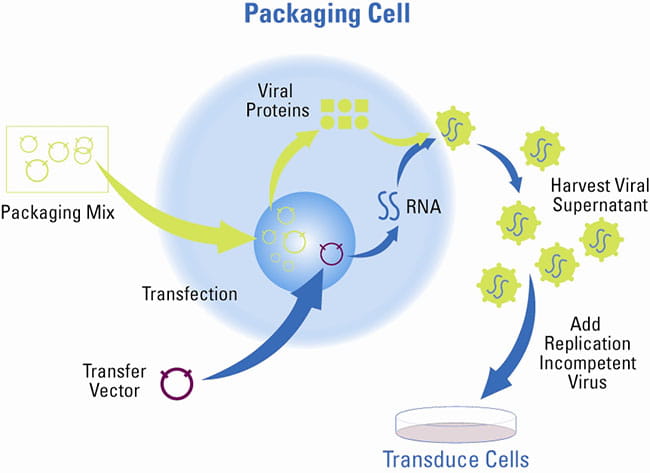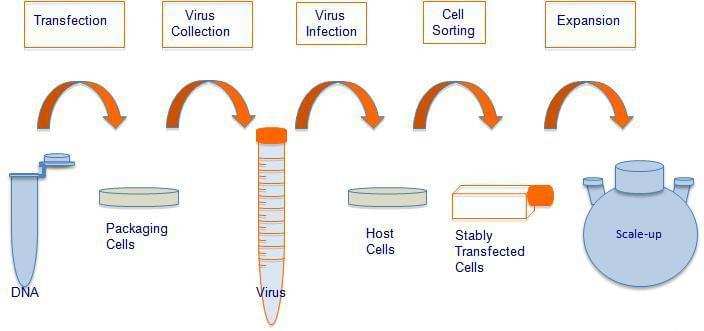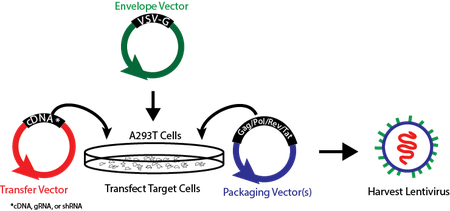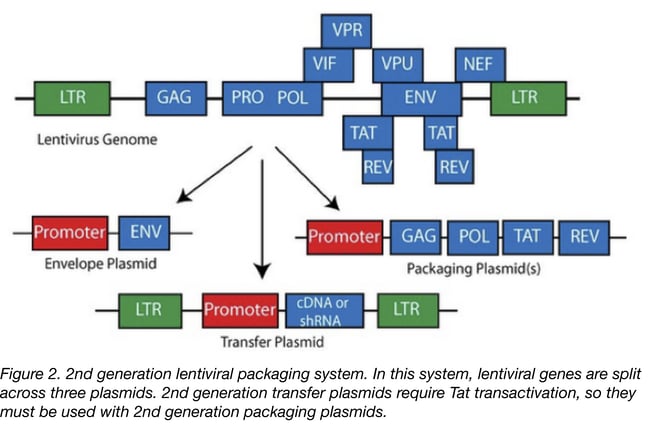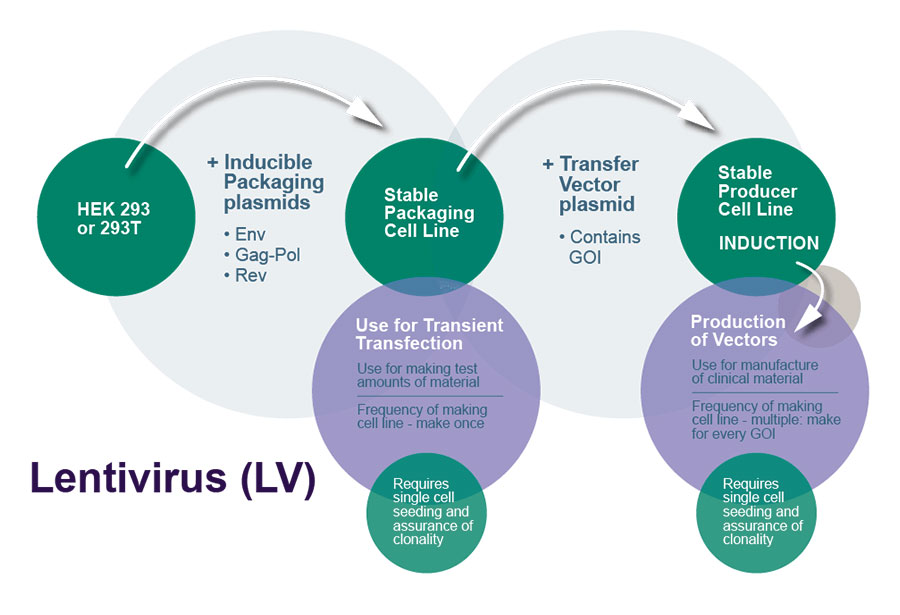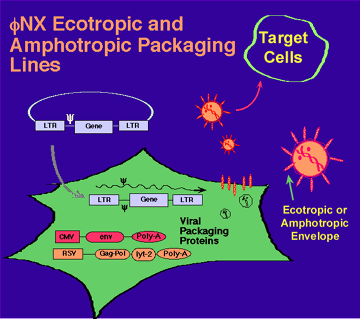Based on the drop in ph post induction for the gprtg ef1α hγ c opt stable cell line in cell factories and studies that have shown transient lvv production to increase at lower ph values 29 31 the effect of maintaining a range of ph set points throughout the vector production phase was investigated.
Stable lentiviral packaging cell line.
To allow safe production of vector a minimal packaging construct carrying only the coding sequences of the hiv 1 gag pol tat and rev genes was stably introduced into 293g cells under the control.
However packaging and producer cell lines which have elements of the lentiviral packaging system already embedded in the cells genome offer an attractive alternative to transient transfection.
The icellis is a packed bed bioreactor for adherent or entrained cells with surface areas from 0 53 to 500 m 2.
Lvv are typically produced in hek293 t cells in suspension bioreactors using serum free media or adherent cultures with serum.
This uses cre recombinase mediated cassette exchange to insert a codon optimised hiv 1 gag pol expression construct in a continuously expressed locus in 293ft cells.
This study demonstrates that csin transduction of sodk1 stable packaging cells 11 results in a stable sin lentivirus vector producer line from which vector titers higher than 10 6 iu ml can be routinely generated.
We have successfully generated and characterized a stable packaging cell line for hiv 1 based vectors.
Here we describe a general method for construction of stable packaging cell lines that continuously produce lentiviral vectors.
Stable packaging cell lines have been developed to improve viral titers and safety.
Reactors were inoculated at 15 000 cells cm 2 8 10 7 cells total and maintained at ph 7.
This represents the first nontransient production protocol using a sin vector packaging cell line.
Lentiviruses are used widely to generate stable expression mammalian cell lines.
They are used for gene down regulation by using shrna or for gene up regulation by using orf of the gene of interest.
Lentivirus and other retroviral vectors are useful tools to engineer chimeric antigen receptor car t cells which are designed to target tumor cells in the growing field of gene therapy.
